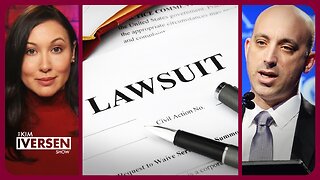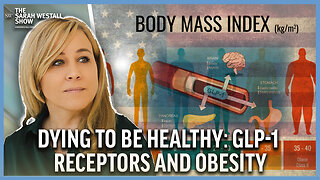Premium Only Content

Life after near death injury _ Falls, Workplace Injuries, Deaths, Accidents, Fatality OSHA, Training
Life after a near-death injury can be an incredibly transformative and challenging experience. Whether the injury results from falls, workplace accidents, or other fatal hazards, survivors often face physical, emotional, and psychological hurdles. Here's a breakdown of relevant aspects to consider:
### **Physical Recovery**
- **Rehabilitation:** Physical therapy often plays a significant role in regaining strength and mobility. Depending on the injury, this can take months or years.
- **Chronic Pain and Disabilities:** Some injuries result in permanent changes, such as reduced mobility or ongoing pain, requiring adjustments in lifestyle.
- **Assistive Devices:** Prosthetics, wheelchairs, or other tools may become part of daily life to maintain independence.
### **Emotional and Mental Health**
- **Trauma and PTSD:** Many survivors deal with flashbacks or anxiety related to the incident. Therapy or counseling can help address these challenges.
- **Depression:** Loss of abilities, independence, or identity can trigger depressive episodes.
- **Support Systems:** Friends, family, and support groups are essential for emotional healing.
### **Workplace Safety Implications**
- **OSHA Regulations:** Near-death workplace accidents often lead to reviews of safety practices. Employers may enhance training and compliance with OSHA (Occupational Safety and Health Administration) standards to prevent future incidents.
- **Safety Training:** Survivors often advocate for improved safety protocols, including fall protection, hazard recognition, and emergency response.
### **Life Purpose and Advocacy**
- **New Perspectives:** A near-death experience can lead survivors to reassess priorities, focus on meaningful relationships, and pursue new goals.
- **Advocacy for Safety:** Many injured workers or accident survivors become advocates for workplace safety, sharing their stories to promote awareness and change.
### **Financial and Legal Concerns**
- **Medical Expenses:** Long-term treatment can strain finances, even with insurance. Workers’ compensation may provide some relief in workplace injury cases.
- **Legal Action:** In some cases, survivors may seek compensation for negligence through lawsuits.
- **Return to Work:** Adapting to work or finding a new career path may be necessary for those who can no longer perform previous roles.
### **Prevention and Lessons Learned**
- **Enhanced Safety Measures:** Employers and organizations often learn from accidents by enforcing stricter safety protocols.
- **Empowering Others:** Survivors may take on roles in training or public speaking to prevent similar tragedies.
Would you like me to focus on any of these areas or help create a guide or resources related to recovery and advocacy?
-
 1:25:53
1:25:53
Kim Iversen
3 days agoStriking Back: Taking on the ADL’s Anti-Free Speech Agenda
60.8K22 -
 49:35
49:35
Donald Trump Jr.
10 hours agoA New Golden Age: Countdown to Inauguration Day | TRIGGERED Ep.202
141K164 -
 1:14:34
1:14:34
Michael Franzese
9 hours agoWhat's Behind Biden's Shocking Death Row Pardons?
61.4K42 -
 9:49
9:49
Tundra Tactical
7 hours ago $6.60 earnedThe Best Tundra Clips from 2024 Part 1.
63.4K7 -
 1:05:19
1:05:19
Sarah Westall
8 hours agoDying to Be Thin: Ozempic & Obesity, Shedding Massive Weight Safely Using GLP-1 Receptors, Dr. Kazer
61.1K16 -
 54:38
54:38
LFA TV
1 day agoThe Resistance Is Gone | Trumpet Daily 12.26.24 7PM EST
45.3K9 -
 58:14
58:14
theDaily302
16 hours agoThe Daily 302- Tim Ballard
47.8K2 -
 13:22
13:22
Stephen Gardner
10 hours ago🔥You'll NEVER Believe what Trump wants NOW!!
97.5K231 -
 54:56
54:56
Digital Social Hour
1 day ago $9.79 earnedDOGE, Deep State, Drones & Charlie Kirk | Donald Trump Jr.
53.3K5 -
 DVR
DVR
The Trish Regan Show
11 hours agoTrump‘s FCC Targets Disney CEO Bob Iger Over ABC News Alleged Misconduct
58.9K36